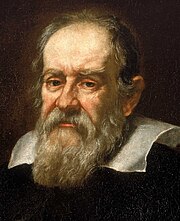Astronomer: Difference between revisions
m Reverting possible vandalism by 165.234.100.105 to version by 98.220.15.46. False positive? Report it. Thanks, User:ClueBot. (377006) (Bot) |
Oota~enwiki (talk | contribs) '''COPERNICUS was POLISH''' |
||
| Line 1: | Line 1: | ||
'''COPERNICUS was POLISH''' |
|||
{{Unreferenced|date=June 2007}} |
{{Unreferenced|date=June 2007}} |
||
Revision as of 23:57, 23 May 2008
COPERNICUS was POLISH

Historically, astronomy was more concerned with the classification and description of phenomena in the sky, while astrophysics attempted to explain these phenomena and the differences between them using physical laws. Today, that distinction has mostly disappeared. Professional astronomers are highly educated individuals who typically have a PhD in physics or astronomy and are employed by research institutions or universities. They spend the majority of their time working on research, although they quite often have other duties such as teaching, building instruments, or aiding in the operation of an observatory. The number of professional astronomers in the United States is actually quite small. The American Astronomical Society, which is the major organization of professional astronomers in North America, has approximately 6500 members. This number includes scientists from other fields, such as physics, geology, and engineering, whose research interests are closely related to astronomy. The International Astronomical Union comprises almost 10,000 members from 87 different countries who are involved in astronomical research at the PhD level and beyond.
While the number of professional astronomers world-wide is not much larger than the population of a small town, there is a huge community of amateur astronomers. Most cities have amateur astronomy clubs that meet on a regular basis and often host star parties in their communities. The Astronomical Society of the Pacific is the largest general astronomical society in the world, comprising both professional and amateur astronomers as well as educators from 70 different nations. Like any hobby, most people who think of themselves as amateur astronomers may devote a few hours a month to stargazing and reading the latest developments in research. However, amateurs span the range from so-called "armchair astronomers" to the very ambitious, who own science-grade telescopes and instruments with which they are able to make their own discoveries and assist professional astronomers in research.
Modern astronomers
Contrary to the classical image of an old astronomer peering through a telescope through the dark hours of the night, it is very rare for a modern professional astronomer to use an eyepiece on a larger telescope. It is far more common to use a charge-coupled device camera to record a long, deep exposure, allowing a more sensitive image to be created because the light is added over time. Before CCDs, photographic plates were a common method of observation. Modern astronomers spend relatively little time at telescopes - most spend a few weeks per year observing, and the rest of their time reducing the data (changing it from raw data to processed images) and analyzing it. Many astronomers work entirely from astronomical survey or space observatory data. Others work with radio telescopes like the Very Large Array, which is entirely automated, although it is maintained by telescope operators.
Astronomers who serve as faculty spend much of their time teaching undergraduate and graduate classes. Most universities also have outreach programs including public telescope time and sometimes planetariums as a public service and to encourage interest in the field.
